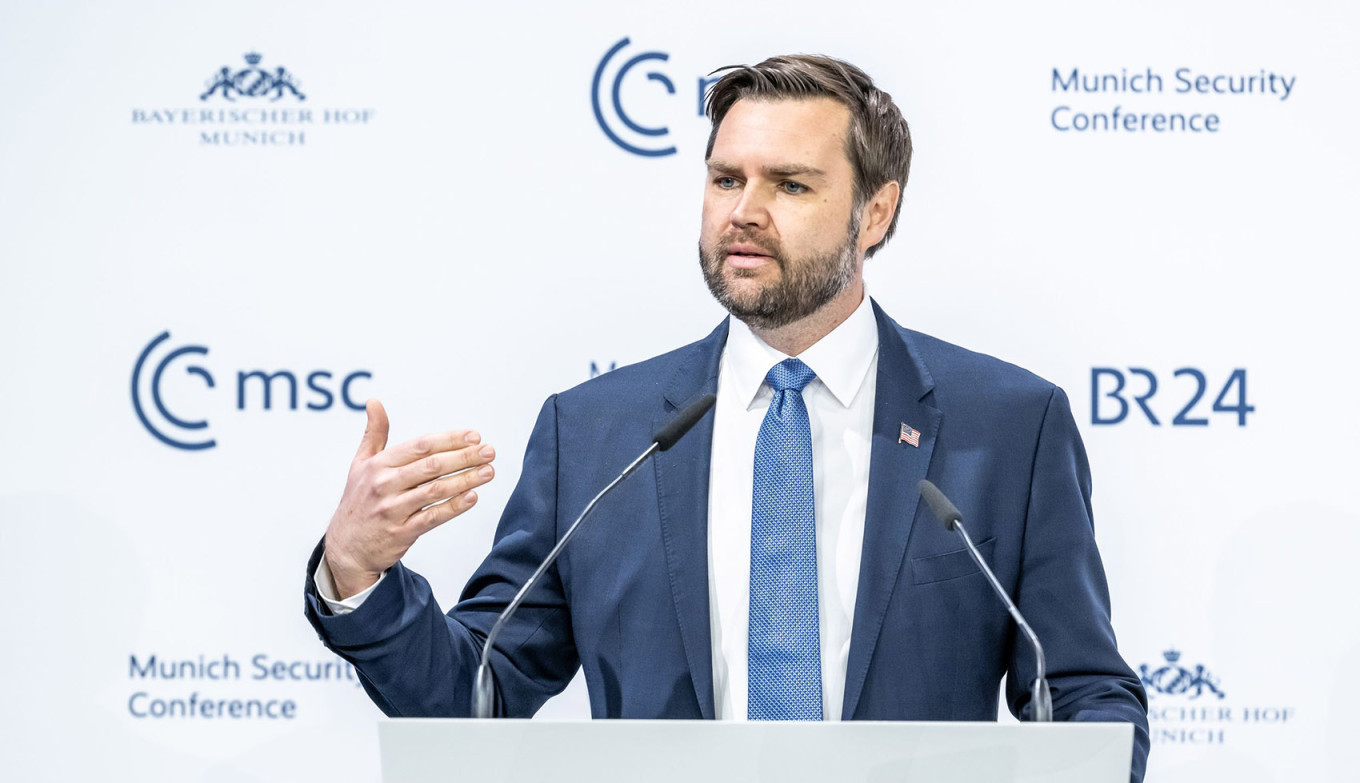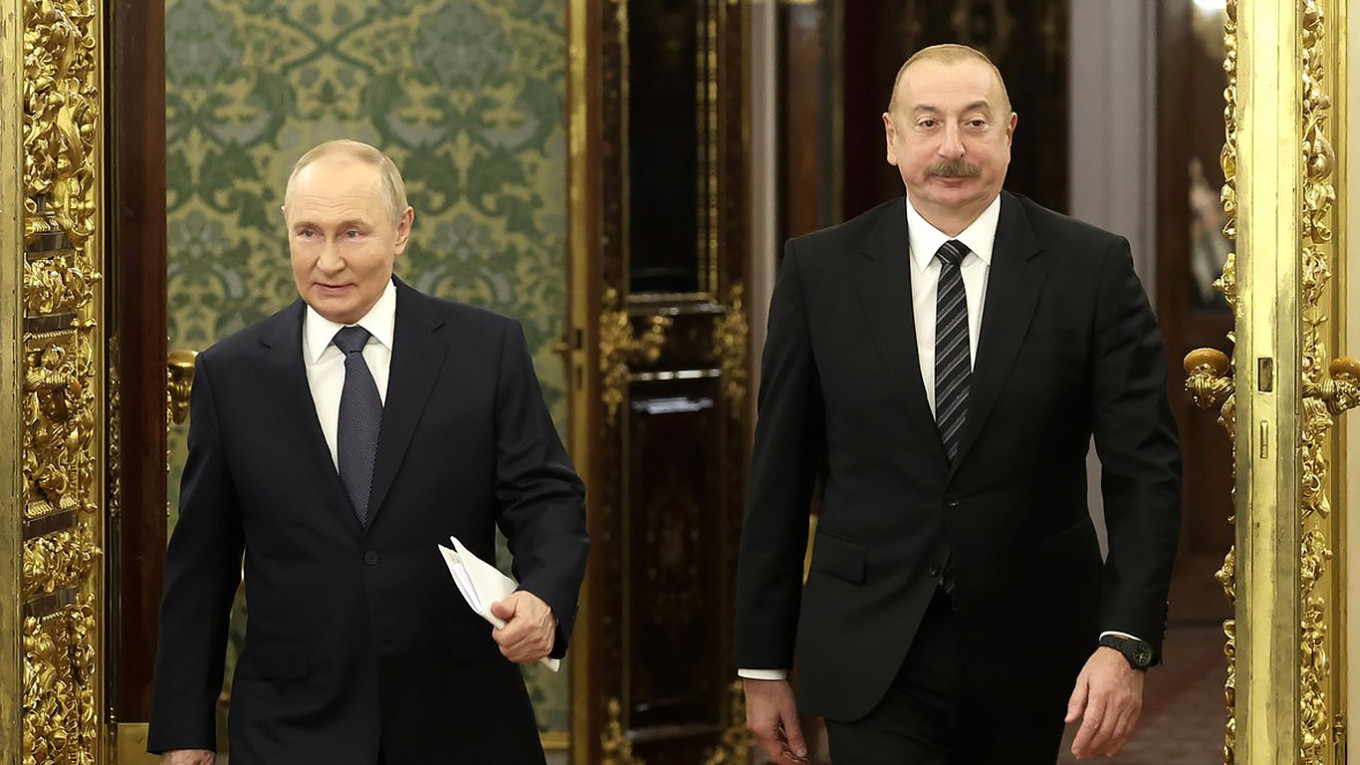
As the location for the annual Security Conference, Munich took on a degree of irony before political and military leaders assembled in the citys grand center.In 1938, the leaders of Britain and France agreed to a deal in Munich that signed Czechoslovakia over to Nazi Germany in the futile hope of appeasing Adolf Hitler and averting a wider European war.Almost 84 years later, onlookers and delegates were warning of a Munich 2.0 in which the United States sold out Ukraine by unilaterally conceding to some of Moscows key demands before peace talks had even begun and potentially leaving Kyiv and Europe defenseless in the event of future Russian aggression.For many delegates whom The Moscow Times spoke to off the record, a series of statements by U.S.
officials in attendance that stunned European allies only amplified this perception.In his speech which only mentioned Ukraine twice Vice President J.D.
Vance lambasted Europe for its dependence on the U.S.
for security and trampling on freedom of speech in the name of combatting misinformation.While conferencegoers expressed shock over the perceived hypocrisy of the deputy to a president impeached for inciting an insurrection, there were signs that U.S.
officials may not act as drastically as Defense Secretary Pete Hegseths speech on Wednesday suggested.
Hegseth walked back his earlier rhetoric to reassure officials that U.S.
support would not drop off a cliff edge.
Vance and Rubio told Europeans that the Trump administration would not settle for a fake peace.
Trumps controversial Director of National Intelligence Tulsi Gabbard, who has faced accusations of adopting a pro-Russian stance in the war, assured her counterparts by stressing the importance of their partnerships.U.S.
Vice President J.D.
Vance at the Munich Security Conference.MSC / PreissHowever, European leaders were keen to stress that dialogue between Washington, Kyiv and the blocs member states was taking place and was warmer than people might perceive, in what Finnish President Alexander Stubb described as subtle diplomacy.Washington sent European capitals a questionnaire last week asking what assistance they would need from the U.S.
to ensure Ukraines security, as well as detailing their current capabilities and whether they would be willing to contribute troops to a peacekeeping force in the country.Despite insistence from European leaders that they have a seat at the negotiating table, Trumps special envoy for Ukraine and Russia Keith Kellog revealed that though Europe would be consulted but ultimately excluded from talks.But the time Europe has to make that case may be limited.
Trumps special envoy for Ukraine and Russia General Keith Kellog revealed that though Europe would be consulted about negotiations, but would ultimately be shut out from the discussions themselves.U.S.
Secretary of State Marco Rubio spoke with Russian Foreign Minister Sergei Lavrov ahead of peace talks in Saudi Arabia this week, the first time discussions between high-level officials from Washington and Moscow have taken place outside of backchannels since the start of the war.Ukrainian officials have not been invited to these talks and only found out about them through media reports.
Ukraines President Volodymyr Zelensky has said he would never accept a deal brokered between Washington and Moscow without Ukraines involvement.Ukrainian President Volodymyr Zelensky.MSC / KuhlmannYulia Navalny.MSC / GuellandMeanwhile, European leaders speaking at the conference all agreed that the continent needed to take steps to increase its military spending and capabilities.But concrete proposals were few and far between.
NATO Secretary General Mark Rutte said that the alliances target for members to spend 2% of their GDP on defense would likely rise beyond 3%, but that discussions would take place at the alliances summit in The Hague in June.On Monday, leaders of the largest EU member states and Britain will convene in Paris with NATOs Rutte and the European Council and Commission presidents for an emergency summit to discuss the continents security and support for Ukraine.However, no spending plans will be announced before Feb.
23 to avoid causing controversy before the German election.
Conservative frontrunner Friedrich Merz told an audience at Munich that he intended to deliver more weapons to Ukraine but has not committed to any spending targets throughout his campaign.For Ukraine, the conference was an opportunity to demand a seat at the table and security guarantees, as well as to shock Europe into taking the threat from Russia seriously.Kyiv rejected an attempt by U.S.
lawmakers to sign away half of Ukraines mineral reserves much of which lie in Russian-occupied territory.
Trump suggested last Wednesday that Kyiv owed Washington half a trillion dollars of its natural resources in exchange for U.S.
assistance.
European Commission President Ursula von der Leyen.MSC / ConzelmannEU High Representative for Foreign Affairs and Security Policy Kaja Kallas.MSC / HildenbrandZelensky told reporters on the sidelines of the conference that the deal which did not include proposals for future assistance was not in Ukraines interests and that Kyiv was trying to negotiate a better deal.
Politico reported that Ukrainian officials still see their countrys resources as a point of leverage over Washington.In a defiant speech on the conferences main stage, Zelensky called for the creation of a united European army to ward off future aggression from Russia.
Let's be honest, now we can't rule out that America might say 'no' to Europe on issues that might threaten it, he said.Zelensky insisted that NATO membership for Ukraine should remain on the table, noting that many member states were in favor Washington notwithstanding.With Danish and German intelligence assessing that Russia could be ready to mount a large-scale war on Europe within five years, there is little time for the continents typically slow and consensus-driven style of lawmaking.
Within hours of the conference closing, Britains Prime Minister Keir Starmer said he was willing to send British troops to join a peacekeeping force in Ukraine.
But he agreed with Zelensky that Washingtons involvement was still essential for securing the continent.If we don't stop the war, it could be daily problem for every European.
Everyone have to understand that their biggest mistake to think the war far away and doesn't touch them personally, Kyiv Mayor Vitaliy Klitschko told The Moscow Times.
That's why right now, everyone has to do it to stop this wars, one of the biggest war after the Second World War in Europe.
Right now, it is a priority not just for us.
It's a priority for the whole democratic world.

 8
8







